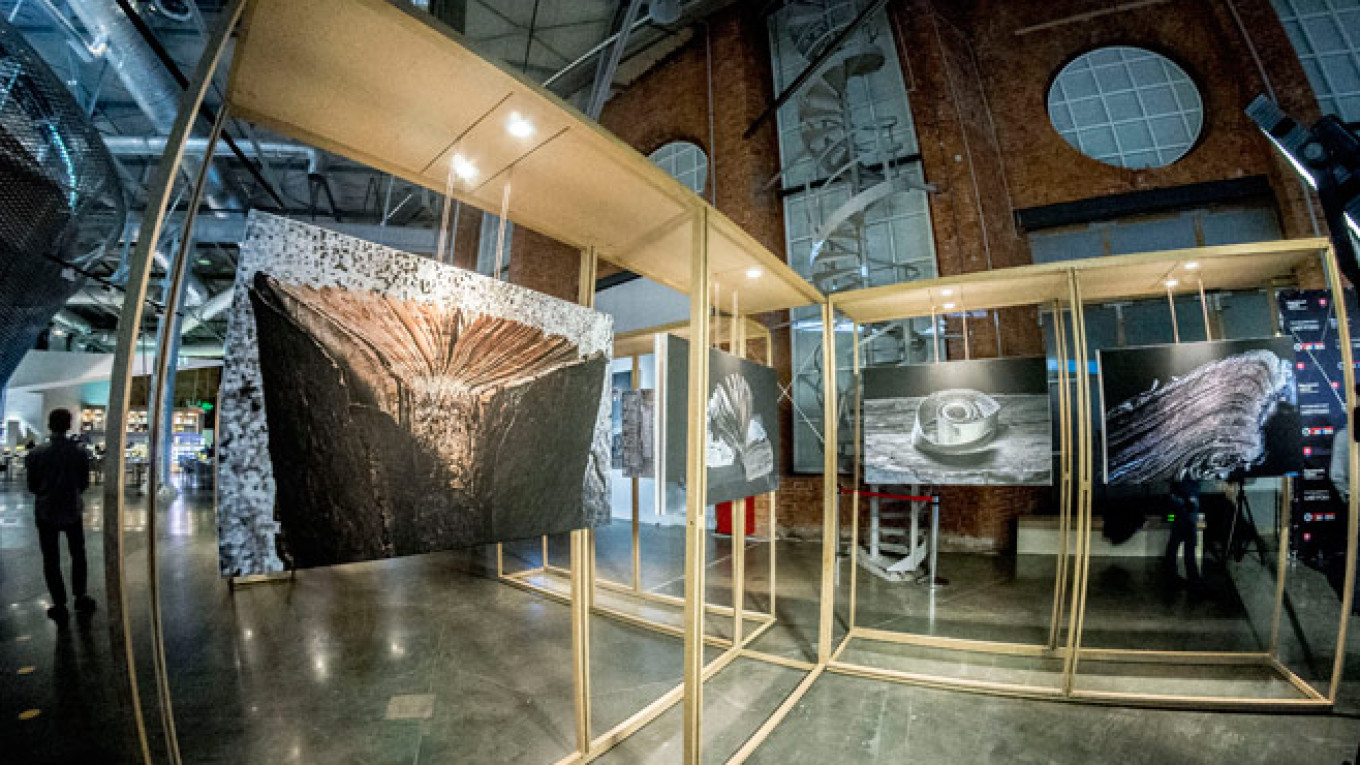How can a museum tell a story in a new way, without resorting to hackneyed cliches? The Jewish Museum and Tolerance Center has succeeded with its new exhibition, "Last Folio." On display are still lives by Yuri Dojc, a photographer who emigrated from Czechoslovakia after the Soviet invasion in 1968. A meeting in 1997 with a woman who had lived through the Holocaust led Dojc to seek out people who could bear witness to events and to find and photograph what he could of prewar Jewish life.
He eventually found the ruins of a Jewish elementary school that had been closed and untouched for half a century. Inside were dust-covered and burnt books, including one that had belonged to Dojc's grandfather before he was sent to Auschwitz. These books became the subject of Dojc's portraits — living witnesses to tragedy. "Books for me are symbolic, because they share with us the lives of people who are no longer alive," Dojc said at the opening of the exhibition.
This small but thoughtfully curated exhibition silently and eloquently tells the story of a vanished time and people.
Jewish Museum and Tolerance Center. 11 Ulitsa Obraztsova, Bldg. 1A. Metro Savyolovskaya. 495-645-0550. Open Sun. to Thurs. noon to 10 p.m. and Fri. 10 a.m. to 3 p.m. Admission is free, and the exhibition runs until Jan. 16.
A Message from The Moscow Times:
Dear readers,
We are facing unprecedented challenges. Russia's Prosecutor General's Office has designated The Moscow Times as an "undesirable" organization, criminalizing our work and putting our staff at risk of prosecution. This follows our earlier unjust labeling as a "foreign agent."
These actions are direct attempts to silence independent journalism in Russia. The authorities claim our work "discredits the decisions of the Russian leadership." We see things differently: we strive to provide accurate, unbiased reporting on Russia.
We, the journalists of The Moscow Times, refuse to be silenced. But to continue our work, we need your help.
Your support, no matter how small, makes a world of difference. If you can, please support us monthly starting from just $2. It's quick to set up, and every contribution makes a significant impact.
By supporting The Moscow Times, you're defending open, independent journalism in the face of repression. Thank you for standing with us.
Remind me later.


